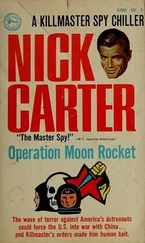Or something. Right.
I drove slowly, keeping the speed down so that if I lost control again I wouldn’t kill myself or anyone else. With the glaring exception of the radio, the car continued to behave normally.
Forget magnetic anomalies, it was the handset from the f-panzer. That thing had to be a radio, although I could not imagine how a handset could be made so small. I’d seen plenty of radios in my work at Boeing. Miniaturizing the tubes alone would be an engineering challenge on par with the biggest projects ever considered. And it wasn’t just tubes. Circuit design, fabrication, the works. Whoever had buried my aircraft in the Arctic ice had also built a transceiver that was a miracle of engineering, a transceiver that the Nazi gang here in Butler County was using to track me and somehow take control of my car. Not to mention whisper in my ear.
That idea was plumb crazy. Radio didn’t work that way. In principle, you could use radio waves to send control signals for mechanical processes, but that would require extensive special equipment at the receiving end — servomotors and so forth. No one could build a receiver that would take over the electrical system of an ordinary automobile.
Which, of course, was what had just happened to me. On the other hand, no one could build that receiver in the first place, so if they could do one impossible thing, why not do another?
Hands clenched on the wheel, I made it through the middle of town, averting my eyes as I drove past the turn to the State Street Lounge. I didn’t think I could ever set foot in that place again.
Even though I felt like a circus freak — see the Unlucky Man, displayed for your edification ladies and gentlemen — no one on the streets of Augusta gave me a second glance. Gaining confidence in the Cadillac’s continued good behavior, I gradually accelerated as I headed out past the eastern edge of town.
The radio still stuck loudly on one station, I listened to colored folks praying and singing all the way back to the Bellamy place.
As usual, the little track that cut off from Haverhill Road up to the Bellamys’ farm was almost axle-deep in mud. But the black walnuts lining the road were beautiful enough to make up for the aggravation of driving it. I was also pleased to see the tell-tale caterpillar tracks of the f-panzer had been obscured by all the recent coming and going.
I manhandled the Cadillac as it slid along. The car fishtailed to the rhythms of the colored church service on the radio. I found I was tapping my fingers on the steering wheel rim in time to the music as well.
I laughed. “Who’d have thought it?” I asked the walnuts.
When I drove into the yard, I considered parking in front of the house and walking to the barn. The Cadillac was lower to the ground than either my Hudson or Mr. Bellamy’s truck. But then I’d have to carry the German handset. I’d decided the thing scared me, sitting on the passenger seat, scorching a hole in Doc Milliken’s carpeted floor mat. I was darned glad I’d thought of the mat in the first place — it would be cheaper to replace than the seat leather.
I drove across the yard along the smoothest of the various ruts leading toward the barn. As I pulled up in front of the barn doors, the radio shut itself off. I turned the engine of the Cadillac off as well and listened to the silence. Distant birds chirped, chickens fretted within the barn, while somewhere nearby a heifer bawled the eternal complaints of dim-minded cattle.
But there was no motor, no gospel hour, no German voice. Nothing interrupted the sounds of nature except for the sputtering drone of a small airplane.
That got my attention. I jumped out of the car and walked around the barn, scanning the sky. In the distance I could see a small high-winged monoplane circling low. Probably a Piper Cub, L-4 in the military version. I recognized a search pattern when I saw one, and I was willing to bet my friend upstairs was either looking for an old Mack stake bed truck or a blue Cadillac convertible.
I hurried back around to the front of the barn and dragged open the door. Then I started the Cadillac and pulled it inside. Doc Milliken’s big car barely fit with the two trucks already taking up space in the barn, and I nearly ran over one of the barn cats getting the car in there. I stepped out and pulled the doors shut as the droning of the airplane came closer. Thank God for all the mud. That kept me from leaving any kind of a dust trail that would stand out from the air like a searchlight pointing back at me.
I finally turned around and looked at my aircraft. I thought my heart was going to stop.
It had changed shape .
The crumpled fuselage was stretched out, the furrows and bends evening into the elegant airfoil I had envisioned earlier. The ends had expanded into wings, although they were still very stubby. The thing was huge, filling the barn, barely balanced on the back of the Mack truck.
And it was beautiful. It reminded me of a bird of prey, composed organic curves and odd textures across its body. I walked around the airplane. The shape was more like a teardrop set within a flattened disc — a saucer. I sank to my good knee, propping myself up on my bad right leg, and shook my head.
The idea that had been nagging me almost from the beginning had to be true. The engineering of this thing was astounding, beyond anything that could be done by human hands. No German ever built such a thing, I was sure of that, nor an American. Where had it come from? I shook my head in awe.
That stolen Nazi report had been telling me the tale, but it was so unbelievable that I had refused to take it seriously. That this aircraft had been found under the ice truly meant it must be ancient beyond measure. Inhuman. Literally.
I felt cold, and very small.
“What is happening, my brother?” asked a German accented voice in my ear, speaking in the rich, rolling rhythms of a radio preacher.
I was so surprised I lost my precarious balance. I fell over, feet tangled together like a kid who’d run too fast downhill, cursing the pain in my bad leg.
The voice broke into a rousing rendition of “Amazing Grace,” carrying four-part harmony with itself.
The aircraft was talking to me.
It had to be.
Whatever Nazi agents might be lurking in Butler County, they weren’t learning their English from Negro gospel programs. There wasn’t anyone else it could be. I stared at the aircraft in open-mouthed astonishment as the voice continued to sing in my ear. The machine quivered in time to the music.
That proved it. I didn’t even want to think how it was possible — giant banks of phonographs, with some kind of gear-driven selector process? I’d worked with pretty sophisticated calculators at Boeing, but it would take a calculator many times the size of this barn to begin parsing, let alone bounce from German to English. This, perhaps, was the true miracle of my airplane.
Outside, the drone of the Cub became a loud roar as it buzzed the barn. Distracted from my line of thought, I grabbed the smoking floor mat with the silvery radio handset off the seat of Doc Milliken’s Cadillac and ran to the barn door. There were plenty of warped boards for me to peek out between the cracks without opening it.
I watched the Cub land in the lower pasture, spooking the heifers terribly. The little airplane was dark green, with Army Air Corps markings. I had seen enough of them at the Boeing plant during the war, coming and going with visiting engineers or Army Air Force brass. I wish I knew what unit the tail numbers and squadron markings on the Cub referred to — I’d never bothered to learn USAAF unit organizations outside of the heavy bomber wings I had helped build. We always knew over at the plant when one of our big birds went down, sooner or later.
Читать дальше












